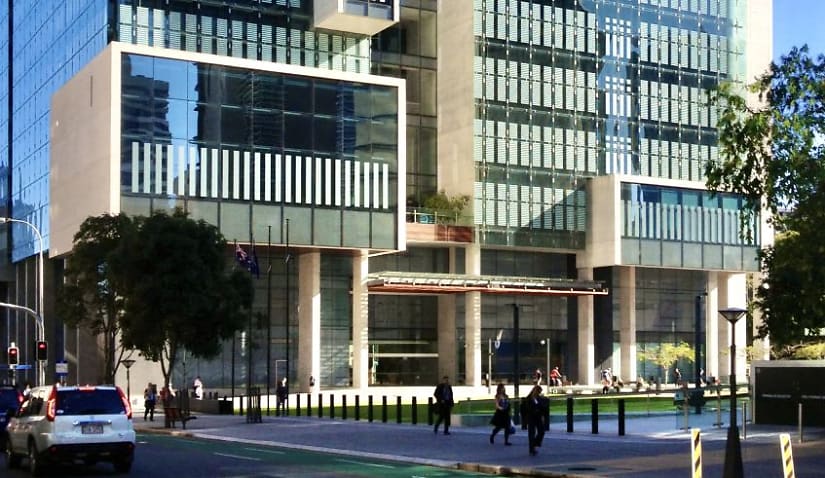A Central Queensland man has been banned from practising law in the state after he was found to have provided legal advice without having an Australian practising certificate.

In charges brought by the Queensland Legal Services Commissioner and heard by Justice Glenn Martin AM in the Supreme Court of Queensland, Gladstone man Surendra Raghoobar was found to have engaged in legal practice in Queensland, despite not being qualified to practise law in Australia.
During this search, 31 document binders were seized, containing documents filed within various courts, tax invoices and communication from up to 20 different clients, concerning 24 “unique matters”.
Mr Raghoobar has a law degree from the United Kingdom, which he obtained from the University of Kent in 1995, before relocating to Australia over a decade later.
From 2010 to 2019, Mr Raghoobar worked as a consultant for two law firms in Queensland: Kenny and Partners and Ramos and Co Lawyers, before starting his own business to continue to provide legal assistance to friends and acquaintances.
The Legal Profession Act 2007 notes that people are unable to engage in legal practice in Australia unless they have a current, local or interstate practising certificate.
According to the judgment, Mr Raghoobar admitted in his affidavit that he was not an Australian legal practitioner, but maintained that he “has never held himself out to be one nor has he engaged in the provision of legal services” and was merely proofreading and editing documents for use in court proceedings and providing “some assistance” to clients in a legal context.
As part of the search warrant, a number of invoices were obtained by the LSC, which Justice Martin said provided a “clear picture of what Mr Raghoobar was doing”.
This included printing and reading orders, drafting letters to the opposing parties of his clients, drafting submissions and court applications, amending initial applications and final orders and making amendments to consent orders, charging fees from $75 to $300.
One of Mr Raghoobar’s clients provided an affidavit as part of the proceedings, where she wrote that his assistance to her was limited to “explaining the court process, checking my documents, checking my correspondence, assisting me with checking and helping me amend these documents for the court and correspondence to return and obtaining fee exemption, when applicable, and generally, being a support person when needed”.
“Mr Raghoobar has given me options about how to move forward with settlement of both parenting and financial matters because although he has a law degree, he is not an admitted legal practitioner and he has never, at any time, purported to be one to me,” she wrote.
A number of Mr Raghoobar’s other clients also swore in affidavits that he had been a “support person” in helping them understand the court process, understanding various legal communications and checking documents for court.
But despite labelling his services as a “consultant”, Martin J found that whether Mr Raghoobar intended to breach practice proscription or not was irrelevant — and that if a person who acts on a legal matter on behalf of another person without an Australian practising certificate is in breach of the law.
“Mr Raghoobar said, and this was not disputed, that he did not represent himself as a lawyer. He did not sign documents for his clients,” Martin J said in his judgment.
“The fact that Mr Raghoobar expressly told his clients that he is not a legal practitioner has no effect on whether his conduct amounted to engaging in legal practice.
“Mr Raghoobar’s argument was that he had not provided legal advice, but the material is replete with examples of that being done. His own material obtained pursuant to the search warrant shows that he was ‘assisting his clients to understand the court processes and what was needed to be done or appropriate to be done’.”
Therefore, His Honour found that Mr Raghoobar had engaged in legal practice by way of assisting with the creation of applications, affidavits and other court documents, advised parties to litigation, drafted correspondence and charged clients for work he had done.
Mr Raghoobar was restrained from providing legal advice in relation to proceedings or potential proceedings, communicating on behalf of parties or drafting correspondence for them, drawing up documents and drafting submissions and attending at or appearing in court on behalf of parties, including negotiating or mediating litigation matters on behalf of any party to proceedings.
There will be a separate hearing for costs.
In a profession alert email pertaining to the court’s decision, the LSC asked that any persons with knowledge of “possible unlawful operation” to contact the commission.
“Without information from the profession, we don’t become aware of any illegal activity and [are] unable to take action to protect both consumers and the reputation of the profession,” the email read.

Lauren is the commercial content writer within Momentum Media’s professional services suite, including Lawyers Weekly, Accountants Daily and HR Leader, focusing primarily on commercial and client content, features and ebooks. Prior to joining Lawyers Weekly, she worked as a trade journalist for media and travel industry publications. Born in England, Lauren enjoys trying new bars and restaurants, attending music festivals and travelling.